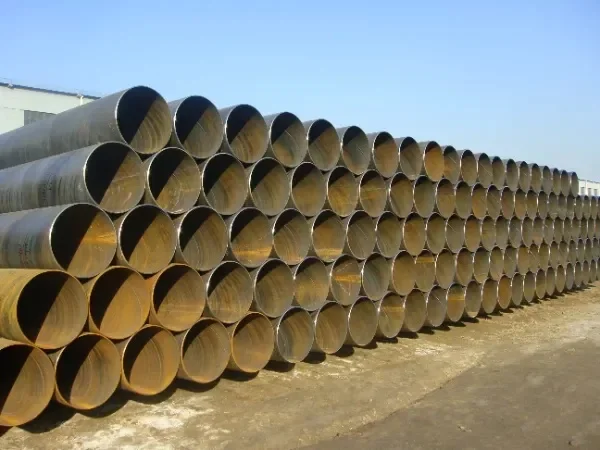Choosing the Right Steel Pipe for Your Project: Tips and Considerations
Steel pipes are an essential component in many construction and industrial projects. They are used for conveying fluids, gases, and solids, as well as for structural support and other applications. However, selecting the right steel pipe for your project can be a daunting task, especially if you are not familiar with the different types, sizes, and grades of steel pipe available in the market. In this article, we provide tips on how to choose the right steel pipe for your project, including consideration of use, size, and material grade.

1. Consider the usage
First of all, you need to determine the purpose and application scenario of the steel pipe. Different application scenarios require different types of steel pipes. Will it be used to transfer water, oil, gas, or other fluids? Will it be exposed to high temperature, pressure, or corrosive environments? Will it be used for structural support or other purposes? These questions will help you narrow down your options and choose the right type of steel pipe for your project.
For example, if you need pipes to carry water or other fluids, you might consider a seamless steel pipe, which is smooth and has no welds that can leak or weaken over time. If you need piping for high-temperature applications, you may consider heat-resistant steel pipe, which can withstand temperatures up to 1200°C. If you need piping for corrosive environments, you might consider stainless steel piping, which resists rust, corrosion, and stains.
2. Consider size
The size and thickness of the steel pipe is also one of the important factors for selection. Different sizes and thicknesses are suitable for different application scenarios. What pipe diameter, thickness, and length do you need? The size of the piping will depend on the flow, pressure, and temperature of the fluid or gas being conveyed, as well as the structural requirements of the project.
For example, if you need a pipe to carry large volumes of water or gas, you may need a pipe with a larger diameter and thickness to handle the flow and pressure. If pipes are required for structural support, thicker wall thicknesses and specific lengths of pipe may be required to meet the load-bearing requirements of the project.
3. Material
The material of the steel pipe is also one of the important factors in the selection. Common steel pipe materials include carbon steel, alloy steel, stainless steel, etc. Different materials have different properties and characteristics, such as strength, corrosion resistance, high-temperature resistance, etc. Therefore, you need to choose the appropriate material according to the needs of the project.
For example, if you need piping for high-stress applications, you might consider high-strength steel pipes, such as API 5L Grade X52 or X65, which can withstand high pressures and temperatures. If you need a pipe for low-stress applications, you might consider mild steel pipe, such as ASTM A53 Grade B, which is affordable and easy to weld.
4. Production process
The production process of the steel pipe is also one of the important factors in the selection. Common production processes include cold drawing, hot rolling, welding, etc. Different production processes will affect the performance and quality of steel pipes. Therefore, you need to choose a steel pipe supplier with reliable quality and advanced production technology.
5. Price and delivery date
Finally, you need to consider the price and lead time of the steel pipe. Different steel pipe suppliers' prices and lead times may vary. Therefore, you need to choose a steel pipe supplier with a reasonable price and reliable delivery time.
Selecting the proper steel pipe for your project requires careful consideration of application, size, and material grade. By following these tips and consulting a reputable steel pipe supplier, you can be sure to get the right pipe for your project, whether it's for conveying fluids, gases, or solids, or for structural support and other applications. When selecting a steel pipe supplier, remember to also consider factors such as cost, availability, and lead time. With the right steel pipe, you can ensure the success and safety of your project.
The Future of Steel Pipes and Pipe Fittings
The Importance of Steel Pipe Testing and Inspection
The Importance of Proper Steel Pipe Maintenance
The Advantages of Steel Pipes in Construction: Durability, Strength, and Versatility






